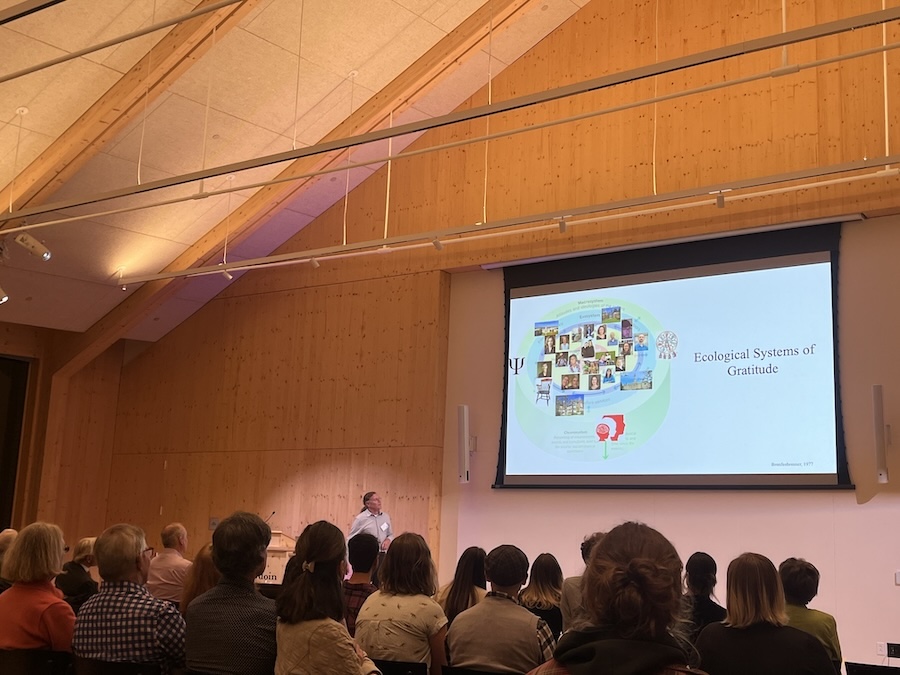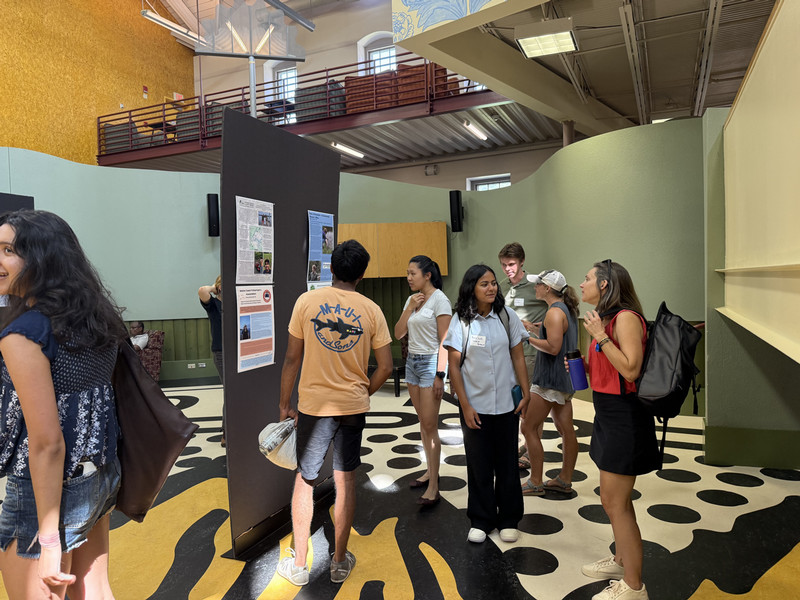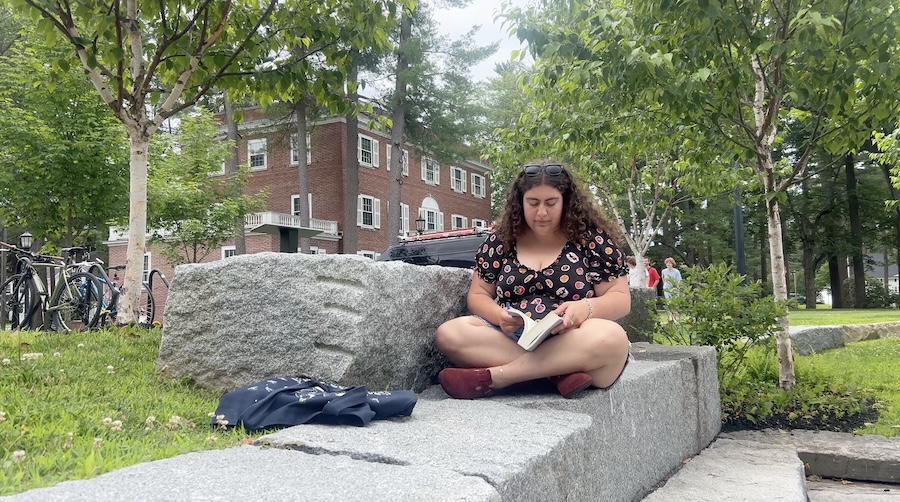Psychology Professor Sam Putnam and His “Aha Moment”
By Lily Echeverria ’26After being named the A. Myrick Freeman Chair in Social Sciences, Putnam gave his inaugural lecture in Mills Hall about the age-old debate of nature versus nurture and what his data has to say on the subject.

President Safa Zaki opened the talk by thanking the anonymous donor who honored Freeman in 2000 with the gift of this chair. She spoke about the professor before introducing Putnam.
“Freeman was an interdisciplinary scholar and teacher who consistently applied his academic work to real world issues,” Zaki said. “His work was as influential in the halls of Congress, state houses, and regulatory agencies as it was on college and university campuses…Freeman was equal parts teacher, scholar, and practitioner, fully engaged with real-world problems. I can think of no better person to carry on his legacy than Sam Putnam.”
Zaki spoke on Putnam’s work and career prior to receiving this honor.
“Professor Putnam is a developmental psychologist whose work focuses on the fascinating question of how biological and environmental influences interact to shape personality, particularly traits such as sensation seeking, negative emotionality, and attentional control,” she said.
She mentioned that Putnam has led two large-scale collaborative projects on how culture impacts personality development, and that his fascination with the topic deeply impacts the classes he teaches.
“In each [class], he encourages students to wrestle with the same central question that drives his own research on who we are,” Zaki said. “He challenges them to approach that question with both intellectual precision and unrestrained curiosity.”
When Putnam took the stage, he began his talk with a reference to a movie he watched when he was a kid that sparked his interest in the ideas of how culture and science shape childhood development.
“The movie Trading Places is not a great movie,” he joked. “But it really had an outsized impact on me.”
Putnam then got right to the point. He said framing the issue as nature versus nurture is outdated. Instead, both factors contribute greatly to shaping children into the adults they become. A better question is to ask how nature and nurture interact to create personality.
Putnam primarily spoke about his most recent research on temperament, which he defined as, “early appearing, relatively stable, constitutionally-based individual differences in reactivity and regulation.”
“One of the first things I wanted to do with one of my larger-scale studies was satisfy my own curiosity, and develop a map of what temperament looked like around the world,” he said. “So I began building this global network.”
This vision soon became the Global Temperament Project, which studied 83,423 infants, toddlers, and children from 341 samples in 59 nations.
They looked at the “big three dimensions” of temperament to investigate its relationship to culture and gender: surgency, regulatory capacity, and negative affectivity. Surgency refers to an individual's positive affect, with associated traits such as cheerfulness, responsiveness, spontaneity, and sociability. Regulatory capacity is how well one exerts self-control, and negative affectivity can manifest as anxiety or neuroticism.
Putnam found that the differences in childhood temperament between nations were much larger than he'd anticipated. The study also found that cultural context has a strong influence on early temperament, and that gender differences grow throughout childhood development.
While recalling his analysis of the data and his “aha” moment, Putnam shared his shock and surprise. He sat in his office on a Saturday afternoon and saw a large correlation.
“My first thought was 'this can’t be right,'” he said. “But then I did some other analyses with other variables, and said, ‘Oh my gosh. It’s really telling this coherent picture.'”
He says he felt lucky, especially after he and his collaborators continued the Global Temperament Project and increased their sample size. The coherence stuck.
“I’m really proud of this data,” Putnam said in an interview. “There are two themes to this talk: one is sharing what I’ve done, the cross-cultural research, and the other is to thank Bowdoin for the opportunities they’ve given me.”
Putnam emphasized that he could not have done this research without the College’s support.
“I’m really grateful for the model of the liberal arts,” Putnam expressed. “I’m grateful to the developmental psychology community…I love my colleagues. I really do have wonderful, very supportive colleagues.”


